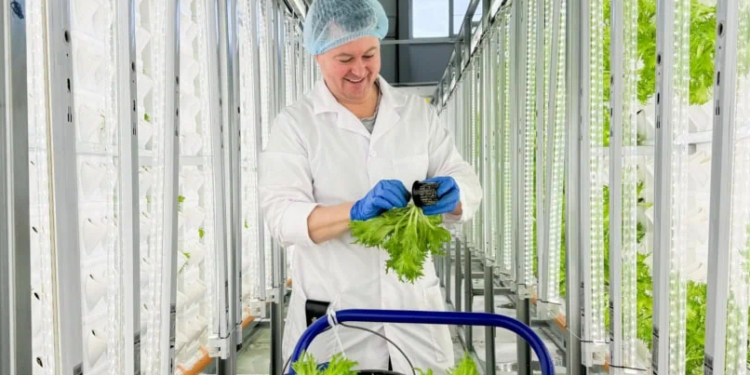In the agricultural sector, innovation is the key to sustainability and productivity. The Zelenich agricultural cooperative in the Ivanovo region demonstrates this by introducing advanced aeroponic technology to grow greens all year round. At the center of their activities is the patented aeroponic modular vertical plant “Zelenich 6000”, covering an area of over 1000 square meters.
During the visit on May 6, Deputy Chairman of the Government of the Ivanovo Region Denis Cherkesov inspected the modern facilities of Zelenich and discussed plans for further development with the management of the cooperative. The cooperative, created in 2023, unites more than 20 entrepreneurs and recently received a subsidy of 3.6 million rubles to offset the costs of equipment, including 13 aeroponic modules and 12 racks for seed germination.
Project manager Dmitry Usachev said that the cooperative now produces 90 thousand units of greens monthly, supplying two large federal retail chains. In the future they plan to expand production. One member leased additional land for a new venture to grow strawberries year-round. They also intend to process herbs such as basil and cilantro into aseptic bags for restaurants and cafes.
Chairman of the cooperative Evgeniy Shapkin spoke about the hybrid technology used in their production, combining aeroponic and hydroponic methods. This approach improves space and energy efficiency, maximizing plant density and light use. The industrial model of this technology is patented, demonstrating the cooperative’s commitment to innovation.
Subsidies for cooperatives like “Zelenich” are part of the national project “Small and Medium Enterprises and Support for Individual Entrepreneurial Initiatives,” initiated by President Vladimir Putin in 2019. This support is critical for agricultural development and food security.
The implementation of aeroponic vertical farming by the Zelenich agricultural cooperative is a testament to the transformative potential of agricultural technology. Their ongoing efforts and plans for the future not only promise increased productivity, but also set the standard for sustainable agricultural practices in Russia.











